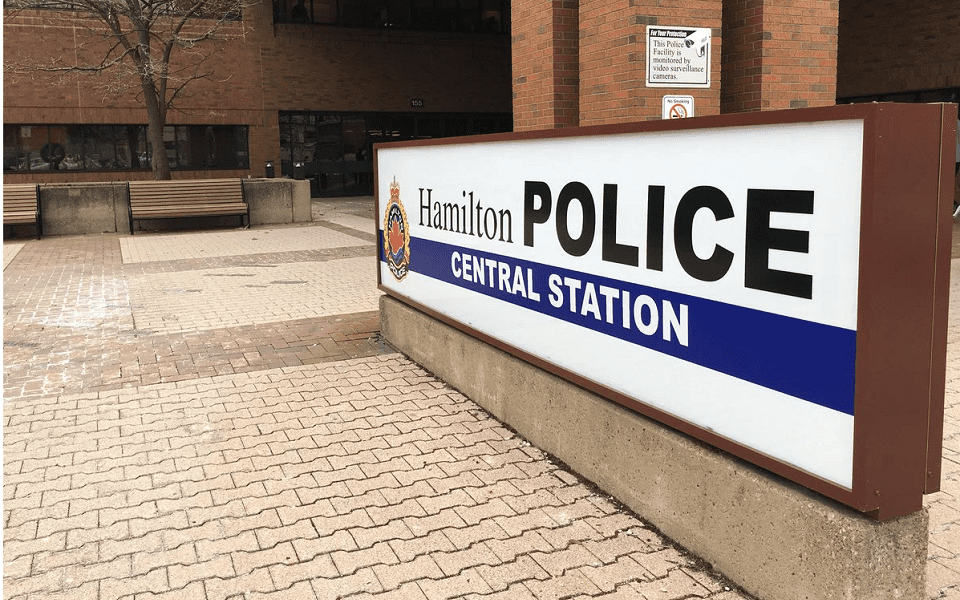Hamilton needs ‘systemic process of police accountability,’ groups say after race-based Toronto data released
Published June 16, 2022 at 8:37 pm

Two social justice groups in Hamilton are reaffirming their call for the city’s police service board to consult with people from racialized groups that face disproportionate enforcement and use of force.
The Hamilton Anti-Racism Resource Centre (HARCC) and Hamilton Centre for Civic Inclusion (HCCI) made the joint statement Thursday. The call came one day after the Toronto Police Service released heretofore unseen data that show disproportionate enforcement and use of force against Black residents in Canada’s largest city.
The Hamilton groups note that its analysis of use-of-force data from the Hamilton police, which was made accessible to analysis after a push from activists, indicates that racialized residents of Hamilton are on the receiving end of use of force at rate double their representation in the city. The findings by Dr. Ameil Joseph and Maddie Broadbank, a McMaster University doctoral candidate, show 38 per cent of use-of-force instances with Hamilton Police Service include at least one racialized person. Only 19 per cent of Hamilton residents are racialized.
“The data Toronto police released is not new information; Black and racialized communities have been saying this for years,” HARCC executive director Lyndon George stated. “It’s why many in the Black community have fought to ensure the data is collected, so chiefs of police and elected leaders can no longer continue to hide from accountability. Whether it’s Toronto or Hamilton, the data remains the same; if you are Black, police disproportionately use force. It’s not enough to simply release the data and apologize; we need it to stop.”
The police services board’s own reporting use-of-force reports from 2020 showed that 18 per cent of such incidents with Hamilton Police Service (HPS) officers involved at least one subject who was Black. In the 2016 Canadian census, only 3.8 per cent of Hamilton’s population identified as Black.
George, and HCCI executive director Kojo Damptey — who is also a Ward 14 city council candidate — pointed out there have been numerous recommendations about systemic racism in policing and the justice system. The statement said the police services board needs to consult with communities that have been harmed.
“We are calling on the Hamilton Police Services Board to start a systemic process of police accountability and oversight in consultation with communities that Police institutions and Police officers constantly harm,” the statement reads.
It also suggests the province should reform the police act, and public funds should be invested “into communities and community organizations that keep Black, Indigenous, and Racialized communities safe.”
Hamilton residents held Defund The Police marches in 2020 following the police killing of George Floyd in Minneapolis, which galvanized the Black Lives Matter movement. Later that year, Hamilton Mayor Fred Eisenberger read a statement acknowledging systemic racism in HPS. But the police services board voted down a proposition to reduce the police budget by 20 per cent.
Eisenberger left the police services boards in November 2021 in an effort to boost diversity.
The data in Toronto shows Middle Eastern people were also overrepresented when it came to enforcement and use of force, according to the report. Latino and East and Southeast Asian residents experienced less enforcement in comparison to their representation in the population but saw more use of force when they did interact with police.
There were also racial differences in strip searches, with Indigenous, Black and white residents searched disproportionately compared with how many of them were arrested.
The statement from HARCC and HCCI is viewable at harcc.ca.
— with files from The Canadian Press
insauga's Editorial Standards and Policies advertising





